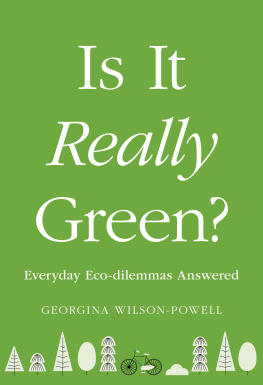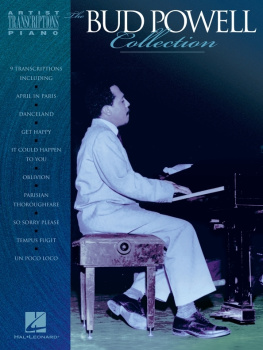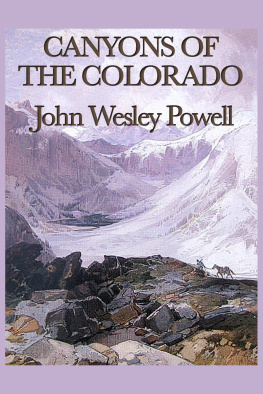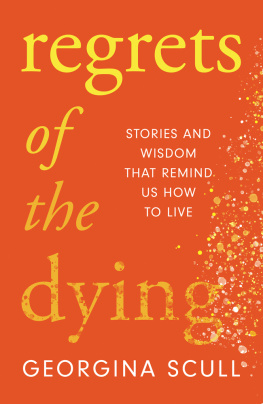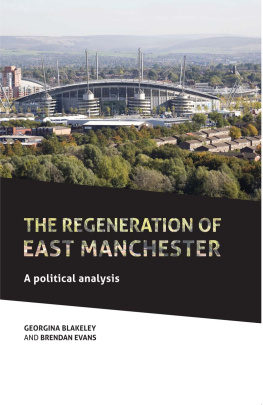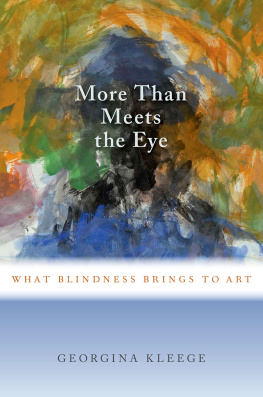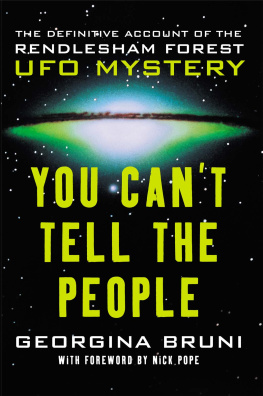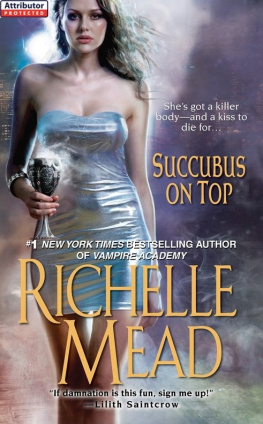Georgina Wilson-Powell - Is It Really Green?
Here you can read online Georgina Wilson-Powell - Is It Really Green? full text of the book (entire story) in english for free. Download pdf and epub, get meaning, cover and reviews about this ebook. publisher: DK Publishing, genre: Children. Description of the work, (preface) as well as reviews are available. Best literature library LitArk.com created for fans of good reading and offers a wide selection of genres:
Romance novel
Science fiction
Adventure
Detective
Science
History
Home and family
Prose
Art
Politics
Computer
Non-fiction
Religion
Business
Children
Humor
Choose a favorite category and find really read worthwhile books. Enjoy immersion in the world of imagination, feel the emotions of the characters or learn something new for yourself, make an fascinating discovery.
- Book:Is It Really Green?
- Author:
- Publisher:DK Publishing
- Genre:
- Rating:3 / 5
- Favourites:Add to favourites
- Your mark:
- 60
- 1
- 2
- 3
- 4
- 5
Is It Really Green?: summary, description and annotation
We offer to read an annotation, description, summary or preface (depends on what the author of the book "Is It Really Green?" wrote himself). If you haven't found the necessary information about the book — write in the comments, we will try to find it.
Is It Really Green? — read online for free the complete book (whole text) full work
Below is the text of the book, divided by pages. System saving the place of the last page read, allows you to conveniently read the book "Is It Really Green?" online for free, without having to search again every time where you left off. Put a bookmark, and you can go to the page where you finished reading at any time.
Font size:
Interval:
Bookmark:
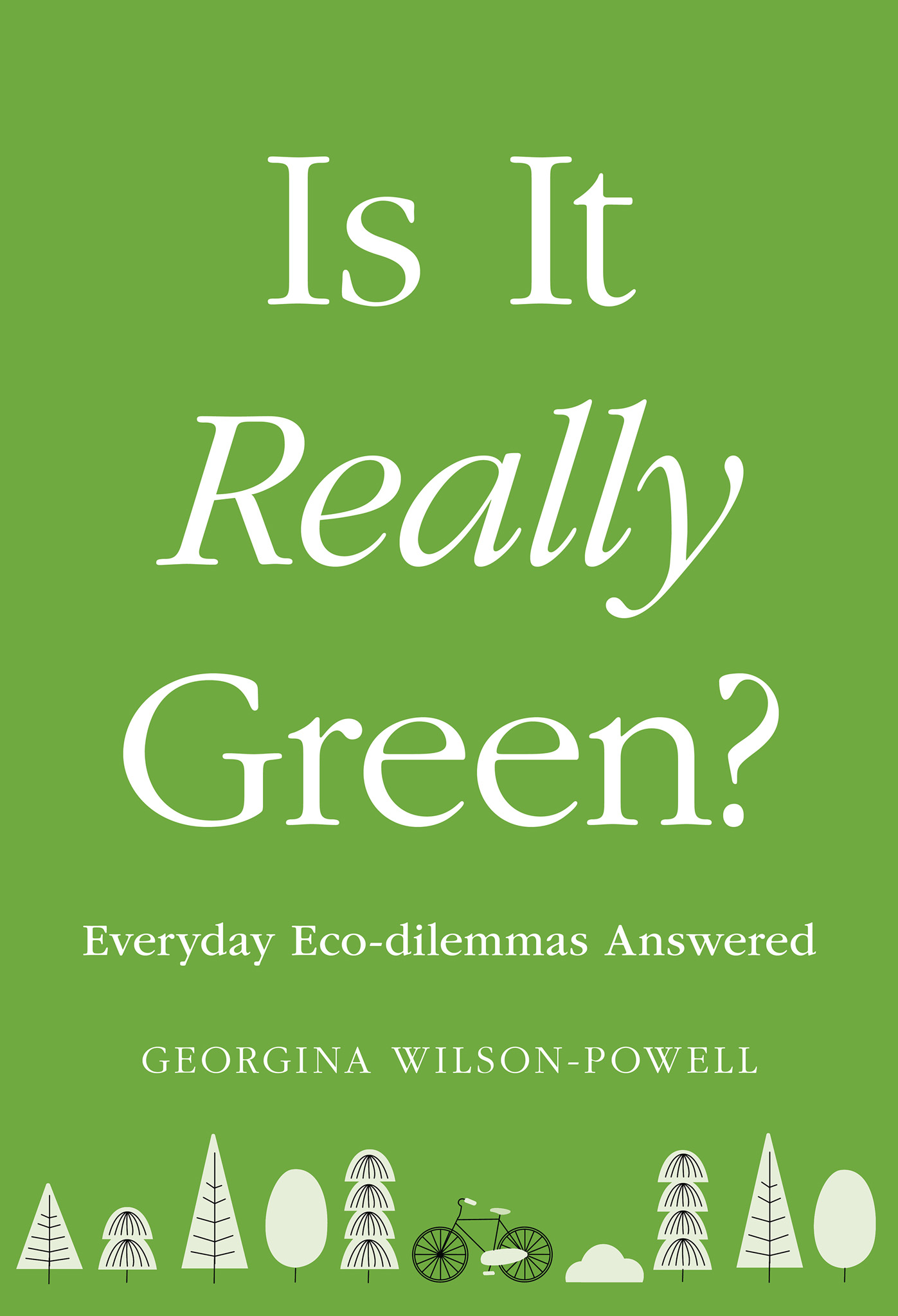
really
green?
Everyday eco-dilemmas answered

Preferred application settings
For the best reading experience, the following application settings are recommended:
- Orientation: Portrait
- Color theme: White background
- Scrolling view: [OFF]
- Text alignment: Auto-justification [OFF](if the eBook reader has this feature)
- Auto-hyphenation: [OFF](if the eBook reader has this feature)
- Font style: Publisher default setting [ON](if the eBook reader has this feature)
g
FOREWORD

Lets get this out of the way. Im like you. As much as I wish that I grew up on an organic farm growing veggies, I didnt. I had the normal childhood of a kid born in the 80s, replete with microwave fries, plastic-filled parties, and high fashion. No one ever gave a thought to what happened to the vast amount we consumed, day in, day out, beyond the trash.
When I was a teenager, most mainstream environmental campaigns focused on acid rain and saving the rainforests. Global warming felt theoretical at best, someone elses problem at worst. The trouble is, its neither of those. Its real, and its here, affecting us through extreme weather events whether we care to acknowledge it or not. Sticking our fingers in our ears isnt an option: we all have a part to play.
While the COVID-19 pandemic has been a wake-up call for some, making us more thoughtful about what we buy, who we buy it from, and whether we need to buy at all, overconsumption remains our societys overriding issue. Our consumer power and desire for stuff, experiences, and pleasure enable corporations to continue abusing the planets resources, with disastrous results.
This book covers eco-dilemmas that I and friends, colleagues, and readers have come up against in day-to-day life. Faced with confusing and often contradictory advice, its easy to shrug and do nothing. Most of us are guiltyme included. Thats the behavior we need to change. Ive tried to find the greenest, simplest solution in each case, or, if that is not possible, Ive explained why.
Entire books could be written about each of the issues I touch on, but I wanted this to be dip-in-able and to give you some straightforward tools to make changes at home, at work, and in your social networks; its our everyday behaviors that we need to adapt.
So why am I the one writing this? Ten years ago, I found myself working in Dubai as a travel-magazine editor, experiencing the kind of jet-set lifestyle I could once have only dreamed of. As fun as it was, I had the creeping sensation that the carbon footprint of my 25+ flights a year wasnt helping anyone, and it wasnt fulfilling me either. I became concerned about how unviable our beautiful world was becoming when I alone was going through a small mountain of plastic water bottles per week and treated planes like buses.
None of us were born knowing what to do; weve had to learn, often going against behaviors ingrained in our upbringing. While most of us have financial limits, and were all short on time, we can still make changes. If I can do it, so can you.
After I left Dubai, I wanted to do something that showcased the people who are finding new ways to combat the climate crisis, from making leather from apple skins to building boats that collect marine plastic. In 2016, I set up pebble, a free digital magazine for stylish, sustainable living.
Going green means making small changes that build into big shifts in social behaviorlook at how quickly we collectively ditched unnecessary plastic straws or paused our travel in lockdown. Together, we can exert pressure on those above us, be they global brands or governments. Dont despair, and dont give up. Use this book to establish quick wins and long-term goals. Share your progress, inspire your friends, talk to your boss or colleagues, ask questions, and dont give your money to people who dont share your concern about the climate emergency. Everyone can do something. The world needs you to start, in some way, today.

Georgina Wilson-Powell
g
The climate emergency is real
Our world is at the brink of ecological collapse, which threatens all of humankind. We use the phrase climate emergency because it is an emergency. According to the United Nations, we had 11 years left to save the planet in 2019. This means we had 11 years to get our carbon emissions under control and keep our global temperature from rising by more than 2.7F (1.5C) above preindustrial levels. Otherwise, we risk experiencing a 5.47.2F (34C) rise by 2100. That would threaten the abilities of our ecosystems and human societies to operate; it would cause our planet to become inhospitable and unrecognizable.
Our planet can only support the life thats on it when its at the right temperature. A warmer world would mean, for starters, no ice caps. If all the ice sheets and glaciers on Earth melted, sea levels would rise by up to 200 feet (60 m), flooding coastal cities, farmland, and islands, causing large-scale migration inland. Even with the increase in temperature weve already experiencedof 2F (1.1C)the effects are clear. Sea levels have risen by 6 inches (15 cm). Extreme weather events have become more common (whether its wildfires in the US or floods in the UK), the seas are warming (which enables more extreme storms and threatens the worlds coral reefs), and were losing key wildlife species at a dramatic rate. All of these issues have direct and indirect consequences, from food shortages to water scarcity, that compound and exacerbate each other.
How did this happen?
We didnt get here overnight. For decades, scientists have been warning of the unintended consequences of our reliance on practices that increase the amount of carbon in our atmosphere, such as the burning of fossil fuels and industrial agriculture. The latter arguably had a role to play in the COVID-19 pandemic, which can be seen as a precursor to the climate- related emergencies we will experience in the future if we dont adopt more sustainable agricultural practices.
Over the last 70 years, global temperatures have increased almost continuously. Were in this situation because of an unbridled lust for products and experiences that depend on finite resources and a disconnection from the natural world, of which we are only a small part.
The climate emergency is also the perfect storm of conditions for us to not take action. Its often intangible, but it is changing landscapes and destroying lives at an accelerating pace. The problem is so enormous and complex that it has felt easier to wait for someone else to solve it. Governments, companies, and many individuals have ignored both natural warnings and those from experts, possibly because change seemed too difficult, too big, or too unprofitable.
For many of us, the pandemic presented a breakdown of ordinary life that had previously been hard to imagine. The whole world has learned lessons from the events of 2020, about both what to do and what not to do. Resilience and preparedness in the face of disaster are as important to surviving the climate crisis as reducing our carbon emissions.
Font size:
Interval:
Bookmark:
Similar books «Is It Really Green?»
Look at similar books to Is It Really Green?. We have selected literature similar in name and meaning in the hope of providing readers with more options to find new, interesting, not yet read works.
Discussion, reviews of the book Is It Really Green? and just readers' own opinions. Leave your comments, write what you think about the work, its meaning or the main characters. Specify what exactly you liked and what you didn't like, and why you think so.

